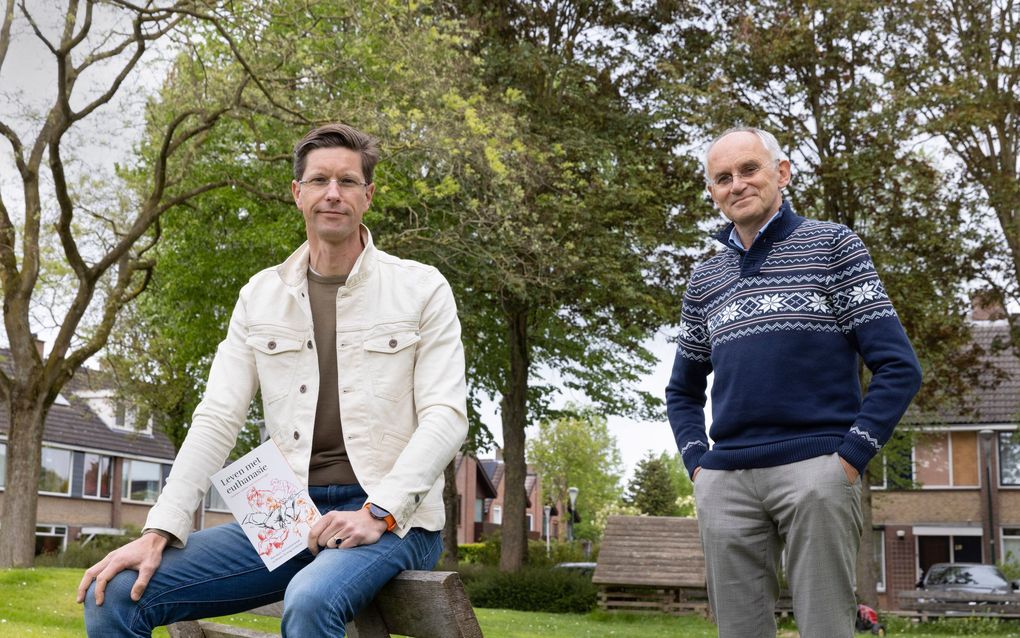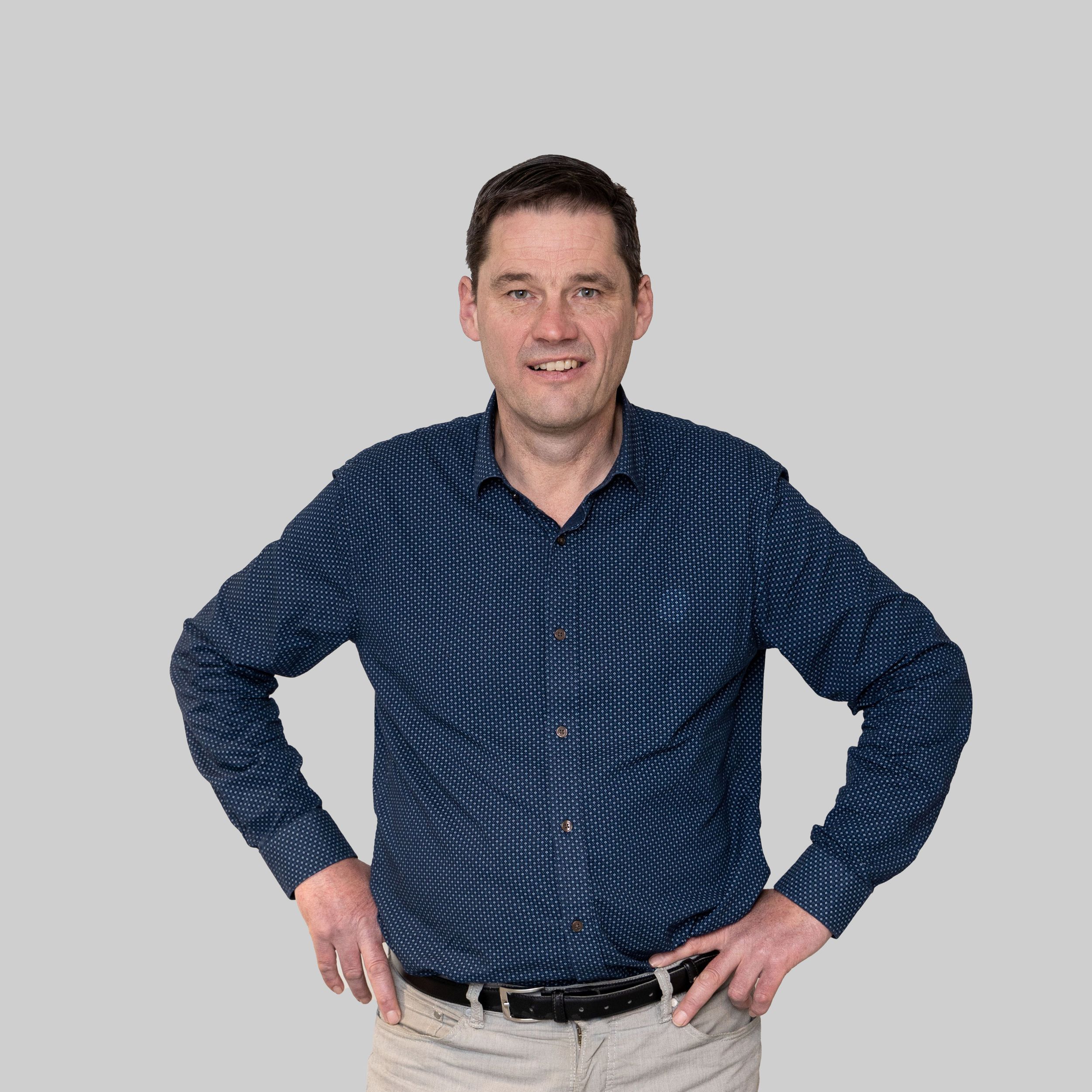Euthanasia in the Netherlands: “It’s neither dignified nor beautiful”
Not less than 43 stories about the euthanasia of a family member or a close friend. That’s what is in the new book by the ethicists Boer and Groenewoud. A funeral director gave them the hint of compiling this volume in which bereaved people tell about the death of a nearby person.

“Your choice for euthanasia made my world collapse”, says one of the people left behind in the book. Prof. Dr Theo Boer nods: “That’s from Cornelia’s story.” Boer is a professor of health care ethics at the Protestant theological seminary (PThU) in Groningen and affiliated for many years with the Prof. Dr G. A. Lindeboom Institute.
Dr Stef Groenewoud agrees: “She looks back on the loss of a dear friend she had met in the mental health sector. When you allow her story to sink in, you realise how euthanasia is also a social event. In the Netherlands, we are not always clear about what it does to the bereaved.” Groenewoud is a health scientist and ethicist at the IQ Healthcare research department of the Radboud University Medical Centre in Nijmegen.
The two ethicists, who are meeting at Boer’s home in Houten for the interview, are both involved in the Moral Compass Project of the PThU. The goal of this research is twofold. One: to collect as much research data and stories of experience about euthanasia and assisted suicide as possible. And two: to examine whether a common morality can be deduced in how those involved (Christian, Buddhist, non-believer or whatever) judge the practice.
Boer: “When it comes to euthanasia, the Bible gives us guidelines. We certainly do not dispute that. At the same time, we assume that God has also indicated moral beacons in creation, in humanity as it were, so that non-believers also have an awareness of good and evil. We do not want to measure these beacons cheaply by our own yardstick: that is Christian, and that is non-Christian. We want to look: Do we have something in common here?”
Boer and Groenewoud completed their first sub-study on euthanasia in January. The study showed that in some parts of the country, the so-called death on demand hardly occurs. While in some city districts, almost one in four deaths result from active termination of life. Groenewoud: “According to outgoing health minister De Jonge, follow-up research into the explanation for these differences is not necessary. We think this is a pity. It is important to ask ourselves why there is such an enormous variation between regions. We try to keep discussing this with GPs.”
Boer: “In the Netherlands, we have a fairly rigid assessment system for euthanasia: the doctor acted carefully or carelessly. If the latter is the case, he is legally suspected of murder. This discourages parties from discussing the subject again twenty years after the law entered into force. Our aim, however, is not to argue in retrospect about all kinds of sensitive issues whether euthanasia there was done entirely according to the rules. We are raising the question of whether everything that is legally permissible is also ethically desirable or responsible. We want to discuss this.”
In their collection “Living with euthanasia”, presented on May 25th, apart from Cornelia, six other relatives look back, desperately, on how they experienced the euthanasia of a loved one. Sixteen are (moderately) positive (“We look back on the whole process with satisfaction”); seventeen exceeded their already enthusiastic expectations (“In the end, what remains is an enormous feeling of gratitude”). Three next of kin are torn between positive and negative memories (“Was this the right thing to do? Shouldn’t I have taken mother into my home after all?”).
What follow-up do you have in mind after this collection?
Groenewoud refers to a daughter who brushes aside her doubts and reservations about euthanasia and commits herself to fulfil her father’s last wish. After the death, it still becomes too much for her. And she even has to seek help for both physical and psychological complaints. Then it appears to be that the executive doctor has overlooked her throughout the process. “I wish those general practitioners would actively try to make people aware of all aspects of euthanasia from the moment they start talking about it.”
Boer: “In my opinion, the value of this collection of stories is that it makes clear that euthanasia is much more complex than some people believe. It is not simple, beautiful and dignified. The picture is really nuanced. Let’s bring those nuances, including the grey and black edges, into the picture. And explore what’s behind that.”
Afterwards
The ethicist points to the story: The son of a mother who wants to die by euthanasia gets into conflict with the doctor because he finds the decision-making process careless. As a result, the doctor keeps him out of everything and only informs him of her death afterwards. “It is a real derailment if you emphasise so unilaterally: every patient is responsible for his own death. Excesses like these; we have to do something with it.”
At least seven of the 43 expressed surprise afterwards at the ease with which a request for euthanasia was granted. Sometimes after a second attempt at a different doctor. Do these cases justify a follow-up investigation into the care taken?
Boer: “The experience that things happened too quickly may well be related to the choice of euthanasia as such. When people tell me they were surprised by the speed of natural death, they often sigh afterwards: But hey, it’s the way it is. Or: His will be done. When it comes to euthanasia, I think dissatisfaction with the speed of death is inseparable from the fact that it is a planned death, manipulated by people themselves. Many stories are thus implicitly a plea for the acceptance of natural death.”
What if critics say, “Nothing wrong here. The majority of the survivors look back positively”?
Boer: “Don’t discount the critical comments either. If, after the euthanasia of a loved one, people also mention the downsides of that choice, I think that is a real reason to take those points seriously. After all, it takes courage to do so”.
Groenewoud: “But with a book like this, people can go in different directions indeed, and we have to face up to that. We intend to develop the book into a scientific study by interviewing some 25 surviving relatives in detail and having them analyse their stories. After that, we would like to continue the discussion.”
Next of kin venting their feelings to two ethicists? How special is that?
Boer: “Incredibly special. These people really let us look into their souls. We are extremely grateful to them for that.”
This article was published previously in the Dutch daily Reformatorisch Dagblad on May 25th 2021
